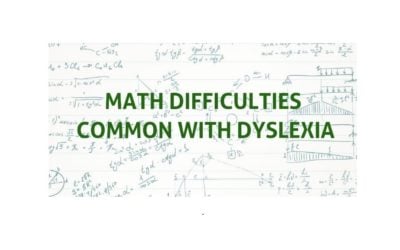Whether you're a student who is just starting high school or preparing to transition to college, there are three important skills to cultivate: SELF-KNOWLEDGE First, there is self-knowledge. - What do you know about how you learn best? - What interests you the most?...
Question: How Do You Help Stealth Dyslexia?
Stealth dyslexia is a term we coined almost 20 years ago to describe dyslexic students who could “fly under the radar” of detection because of compensatory strengths. These students may be “stealth” because they can silently read passages, and comprehend the essential points, but have weak single word decoding and reading fluency when asked to read aloud. Among stealth dyslexics, writing and spelling may be greater challenges than reading. What these students needs depends on which combinations of challenges are the most prominent at any time. Because many students are also gifted, IQ testing can identify strengths and direct placement in advanced classes or subject differentiation in addition to other academic needs.
COMMON CLASSROOM DIFFERENTIATION NEEDS FOR STEALTH DYSLEXICS – Intellectual challenge […]Math Difficulties Common with Dyslexia
Common Irregular Words [Premium]
There are many common irregular words in the English language – and although some teachers and curricula may choose to postpone learning those tricky words until later, it is good, whether you’re a parent, tutor, or teacher, to have an approach to teach students how to distinguish similar words rather than simply saying that the spellings are “exceptions.” Some students are very logical – and may learn better if they are taught exceptions whenever these situations arise.
Here is an example of a tutor who uses picture associations – doodles and colors and boxes to make the different meanings and spellings of “wood” and “would” distinct: The book series Words Their Way is one popular and fairly inexpensive approach […]A Day in the Life of a Creative Director: Guy Cornet
Sensory Processing and Dyslexia [Premium]
What about Sensory Processing and Dyslexia? We recently received a question about this in regard to a young child who is dyslexic. Sensory Processing Disorder or Sensory Integration Disorder (an older term) is a term originally coined by a developmental psychologist and occupational therapist, Dr. Jean Ayres in the early 1960s. It described difficulties in sensory regulation that involved the five senses (seeing, hearing, smelling, tasting, and touch) as well as balance (proprioception – spatial orientation and movement).
Sensory Processing Disorder came to greater awareness after Carol Kranowitz published the book, The Out-of-Sync Child. Though not a formal medical diagnostic term, sensory processing disorder or SPD often presented in the toddler or early elementary school years when children were noted to be a […]Managing Forgetfulness and Recognizing Its Benefits [Premium]
Can there be any benefits to forgetting? Not all types of memory are alike – and forgetting also takes on many different forms. STRANGE INSIGHTS INTO MEMORY FROM AI A funny thing happened when AI researchers tried to teach machines to learn many languages. Having a perfect memory – it seems, whether in machines or people – isn’t a good thing for flexible and generalizable learning. To really be super flexible learner, you have to forget.
From Quanta Magazine’ How Selective Forgetting Can Help AI Learn Better: “A team of computer scientists has created a nimbler, more flexible type of machine learning model. The trick: It must periodically forget what it knows… A few years ago, Artetxe and others trained a […]MIND Strengths for Tutors: Material Reasoning [Premium]
What many tutors will have noticed is that many structured literacy strategies require frequent repetition because they focus remediation on tasks that are especially difficult for many dyslexic students – the automatic identification of the phonemes that make up words.
Not the Standard Track: Extracurriculars and Work Experience [Premium]
There are many ways of getting from A to Z and many of them don’t require a 4.0 GPA and elite school tracks. Dyslexics as a group may have trouble following the traditional route to their dream career because many of their academic strengths are late-blooming.
Fostering Creativity: The Early Life of Chuck Close [Premium]
Recently, I came across a paper, by Landmark College Professor Ken Gobbo, writing about the early life of artist Chuck Close – and this led me to an oral history recorded at the Smithsonian.
Dyslexia at Work: Dyslexia-Friendly Hiring? [Premium]
Research suggests that work teams that have at least one neurodiverse member are likely to be 30% more productive, but many companies have hiring practices that may exclude neurodiverse candidates before they are able to demonstrate their strengths.
Research Updates in Gifted Dyslexics [Premium]
Research into the Gifted Dyslexic population remains scarce, but there have been a few articles in the last years that may be helpful in identifying and supporting these students. One difficulty interpreting data from twice-exceptional research is that studies that focus solely on students with unevenness in scores may combine gifted dyslexic student scores with those who are gifted and on the autism spectrum. Because fluid reasoning scores may be very different between gifted and autistic populations, it’s difficult to draw conclusions for either group. As an example, Danika Maddocks in Gifted Child Quarterly undertook a review of 3891 K-12 school children, but failed to distinguish 2e-LD subpopulations. As a result, when she concluded that twice-exceptional LD students could outperform non twice exceptional students in […]

![Ready, Set… Go! From High School to College [Premium]](https://www.dyslexicadvantage.org/wp-content/uploads/2024/05/Ready-Set-Go-1.jpg)


![Common Irregular Words [Premium]](https://www.dyslexicadvantage.org/wp-content/uploads/2024/05/Common-Irregular-words-da-400x250.png)

![Sensory Processing and Dyslexia [Premium]](https://www.dyslexicadvantage.org/wp-content/uploads/2024/05/Sensory-Processing-and-Dyslexia-1.jpg)
![Managing Forgetfulness and Recognizing Its Benefits [Premium]](https://www.dyslexicadvantage.org/wp-content/uploads/2024/04/Managing-Forgetfulness-and-Recognizing-Its-Benefits-400x250.jpg)
![MIND Strengths for Tutors: Material Reasoning [Premium]](https://www.dyslexicadvantage.org/wp-content/uploads/2024/04/Material-Reasoning-Premium-2-400x250.jpg)
![Not the Standard Track: Extracurriculars and Work Experience [Premium]](https://www.dyslexicadvantage.org/wp-content/uploads/2024/04/Extracurriculars-and-Work-Experience-Premium-1-400x250.jpg)
![Fostering Creativity: The Early Life of Chuck Close [Premium]](https://www.dyslexicadvantage.org/wp-content/uploads/2024/04/Fostering-Creativity-The-Early-Life-of-Chuck-Close-DAs-400x250.jpg)
![Dyslexia at Work: Dyslexia-Friendly Hiring? [Premium]](https://www.dyslexicadvantage.org/wp-content/uploads/2024/04/Dyslexia-at-Work-Dyslexia-Friendly-Hiring-Premium-1-400x250.jpg)
![Research Updates in Gifted Dyslexics [Premium]](https://www.dyslexicadvantage.org/wp-content/uploads/2024/03/Research-Updates-in-Gifted-Dyslexics-A-400x250.png)













